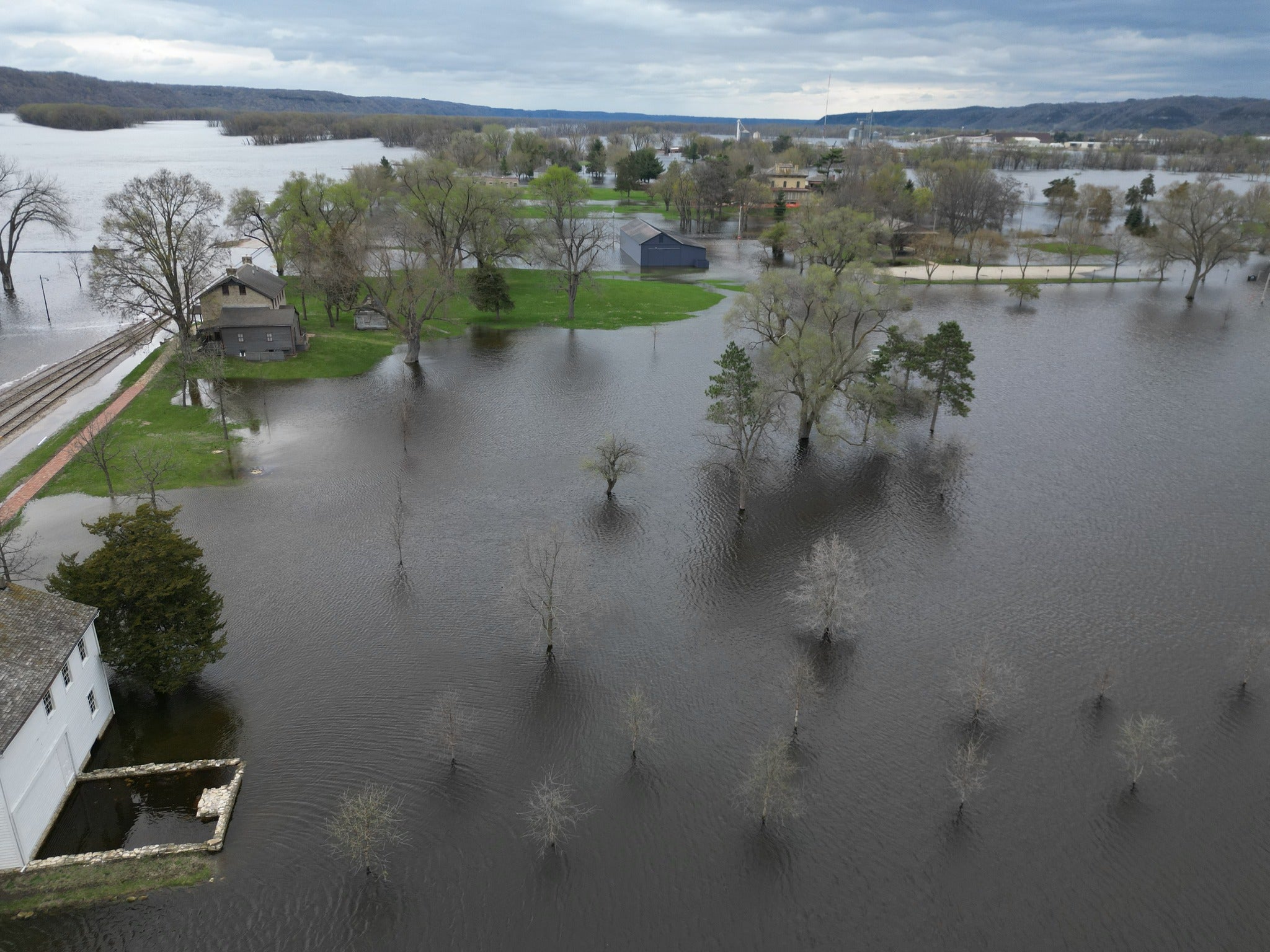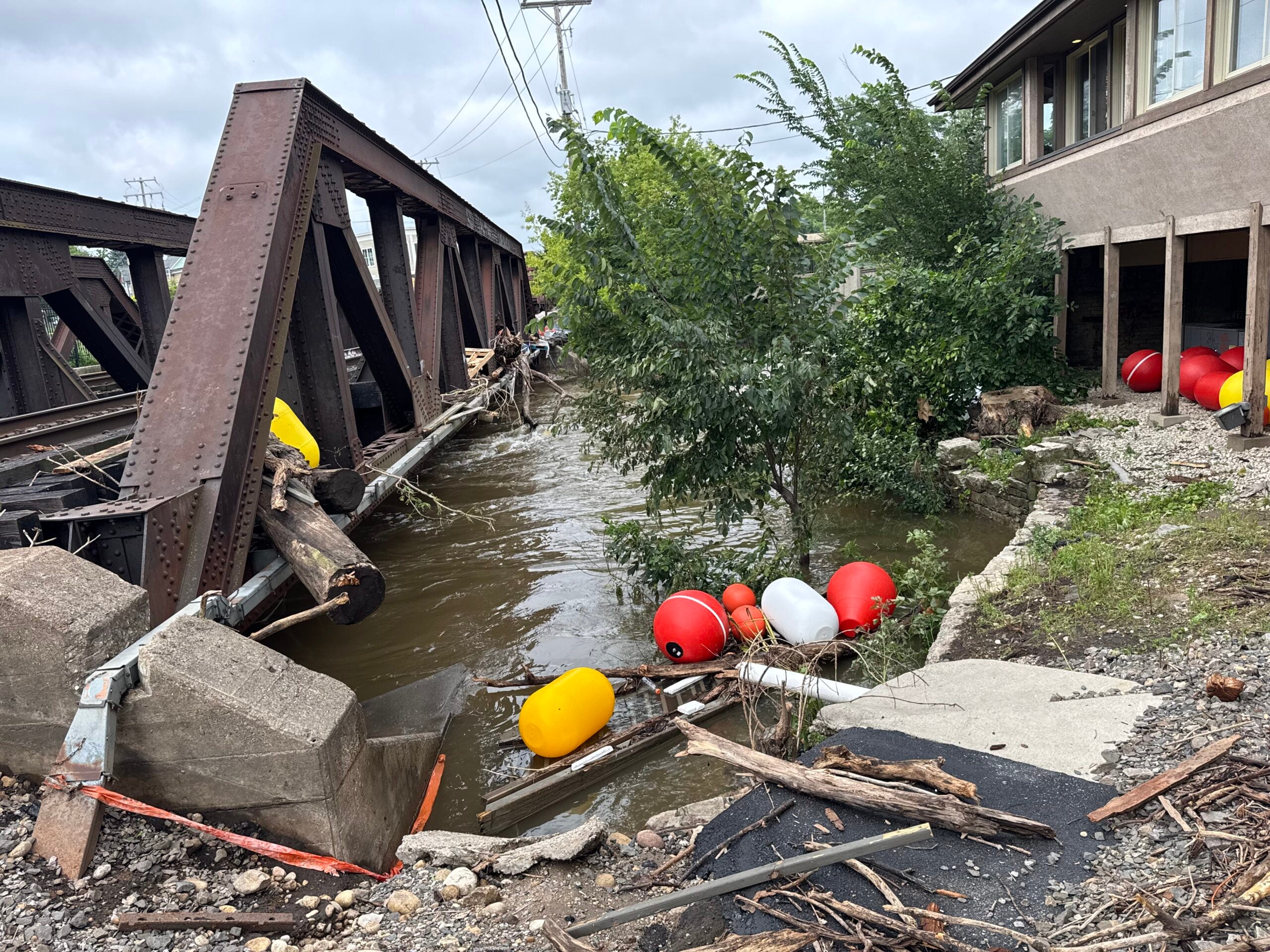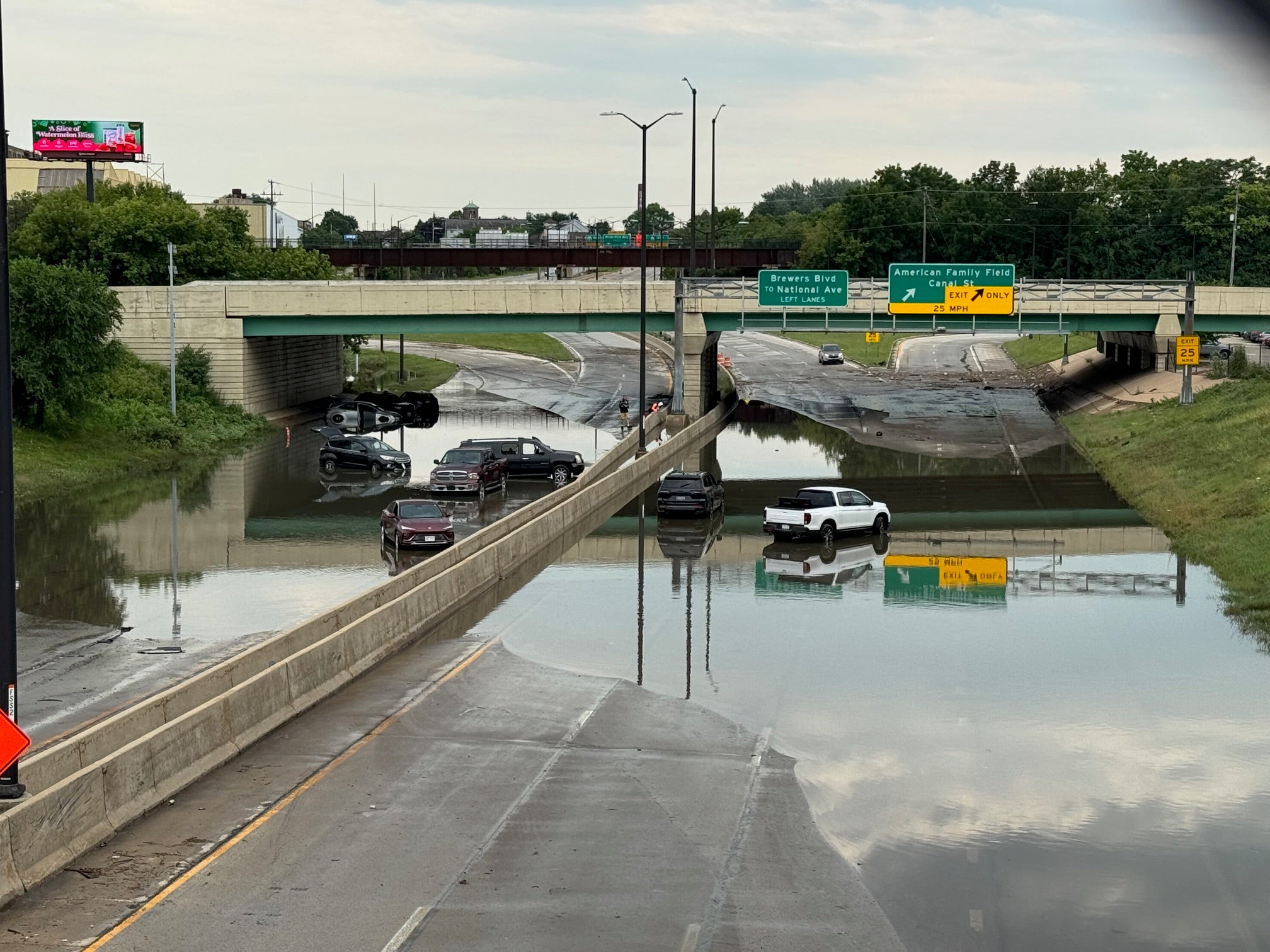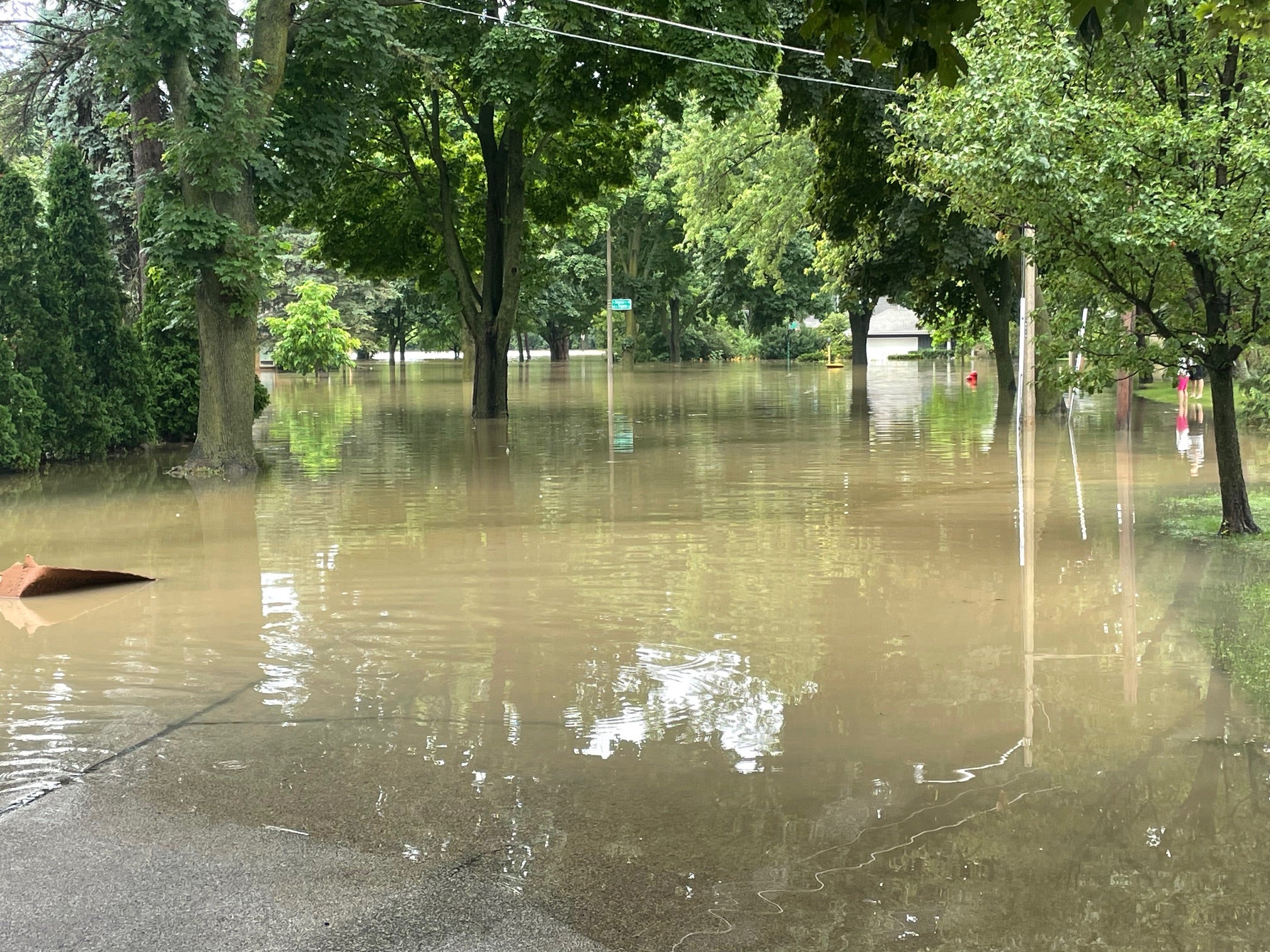Wisconsin communities will get some help assessing and reducing flood risks under a measure the state Legislature sent to Gov. Tony Evers.
The bipartisan bill creates two types of flood resilience grants to better protect against 100-year floods that are expected to increase due to climate change.
One grant would provide up to $300,000 to assess flood risk vulnerabilities. Another grant, capped at $250,000, would fund restoration projects that reduce flood damage and protect important infrastructure like roads.
News with a little more humanity
WPR’s “Wisconsin Today” newsletter keeps you connected to the state you love without feeling overwhelmed. No paywall. No agenda. No corporate filter.
State Rep. Loren Oldenburg, R-Viroqua, was the lead sponsor of the bill in the Assembly. He told WPR’s “The Morning Show” that many communities have infrastructure unequipped to handle the amount of water that’s becoming more common.
“If you have a bridge or a culvert, it keeps getting washed out on these 100-year flood issues,” Oldenburg said. “What do we need to keep that road or keep that water crossing in place at these events?”
Evers has called for funding flood response mitigation in the past. In 2020, he supported a bill that would have had the state Department of Transportation reimburse counties and municipalities for up to 50 percent of the cost to replace or modify highway culverts and bridges at risk of flood damage.
Both of the grant programs approved by the Legislature last month would fund up to 75 percent of the total anticipated cost of the project.
The Wisconsin Wetlands Association applauded the legislation.
“Degraded conditions and loss of storage in wetlands, streams, and floodplains upstream often intensify flood damages,” Tracy Hames, the association’s executive director, said in a statement. “This legislation recognizes the important role that healthy wetlands, streams, and floodplains play in reducing flood risks.”
Legislators set aside $2 million for the grants in the current state budget. It will have to be included in each new budget in order for the grants to be funded.
Oldenburg said the funding probably is not enough to fund every project, but it was an amount that could gain support in the Legislature.
He said he hopes the state’s emergency management department can find additional funding to supplement the program, because investments ahead of an emergency can cost less than repairing flood damage.
“I heard that (the Division of Wisconsin Emergency Management would) be able to leverage some federal funds through this program also, to these high prone flooding events, and try to save money in the long term,” he said.
Editor’s note: This story has been updated to correct the amount of funding set aside for the grants in the state budget. The budget included $2 million for the program, not $200 million.
Wisconsin Public Radio, © Copyright 2025, Board of Regents of the University of Wisconsin System and Wisconsin Educational Communications Board.







